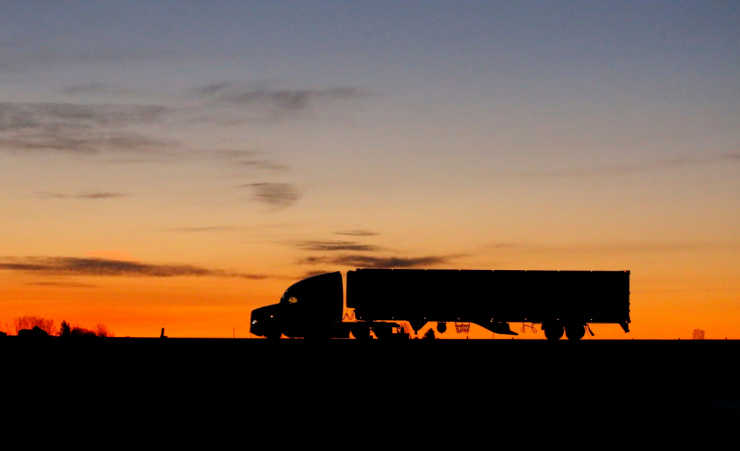California is putting the pedal the metal, explains WSJ editors: In the state’s effort to force a sprint to ban diesel trucks, California is ignoring costs or consequences.
Truckers are raising alarms about a new mandate proposed by the California Air Resources Board (CARB) to electrify their fleets. Starting next year, drayage operators that transport goods between state’s ports and distribution centers would be prohibited from registering new diesel trucks. By 2035 almost all package delivery, drayage and box trucks would have to be “zero emission.”
Don’t forget, 2035 is also the year California’s ban on gas-powered cars takes effect. Electrifying trucks, however, will be even more costly and difficult.
A mere 272 electric trucks were registered in California as of last year. Under CARB’s mandates, some 510,000 trucks would have to be zero emission by 2035.
Destabilize the Grid: Regulate First/Think Later
The WSJ gives readers a classic example:
Start with the costs. Electric heavy-duty trucks are about three times more expensive than new diesel big rigs. The Inflation Reduction Act’s tax credits will offset only $40,000 of the $400,000 to $500,000 cost.
Installing chargers can cost millions of dollars and requires coordination with charging-equipment makers and local utilities. Trucks suck up loads of power, which can destabilize the electric grid. Charging a small trucking fleet can require three times more power than a factory and about as much juice as a shopping mall or sports stadium.
Havoc from California’s Climate Policies
According to a Southern California Edison executive, some fleets are powering chargers using diesel generators so electric trucks don’t go unused.
Who cares if policies don’t reduce CO2 emissions or improve public health as long as regulators claim they do?
Even More Preposterous
As of last month, there were fewer than 700 chargers at trucking depots, yet California’s energy commission estimates 157,000 more will be needed for medium- and heavy-duty trucks by 2030. This would require more than 450 to be constructed each week, while grid upgrades to install chargers could take five to 10 years at minimum.
The Problem of Weight
Electric trucks run on two batteries that each weigh about 8,000 pounds. Since trucks must comply with strict federal weight limits, they won’t be able to carry as large a load as diesel big rigs.
(According to a separate article in thedrive.com: “a rough weight of 11,000 pounds for the pack alone shows just how heavy battery-powered vehicles can be.” Elon Musk recently said Tesla believes it can further increase the efficiency of the Semi to 566 miles on a full charge. The drover.com reports that it is unclear if the efficiency optimizations would be delivered via an over-the-air update or through future hardware improvements.)
Charging Takes How Long?
Batteries can power trucks for about 150 to 330 miles between charging, which can take five to eight hours. Longer battery ranges require bigger and heavier batteries, which add more weight and reduce payload. That means more trucks and drivers will be needed, which will increase shipping costs.
Truckers will have no choice but to charge their trucks at night, “though this is when many prefer to drive because there’s less traffic.”
That means more trucks will be on the road during the day, causing more congestion during work-time commutes.
Among the losers will be independent contractors who won’t be able to afford electric trucks. Some may retire or leave the state. This could disrupt supply chains. California’s ports process about 40% of U.S. imports and 30% of exports. Recall how a shortage of truck drivers two years ago contributed to a backup at the state’s ports.
Shippers will invariably pass on their electric-truck costs to customers around the country. So Americans in Joliet will have to pay more for whatever travels by truck. While the U.S. Constitution grants states police powers to regulate public health and safety, Congress can pre-empt states that regulate recklessly outside of their lane.
The current Congress is too gridlocked to pass anything, but GOP candidates could start talking about California’s climate assault on truckers.
If you’re willing to fight for Main Street America, click here to sign up for the Richardcyoung.com free weekly email.





